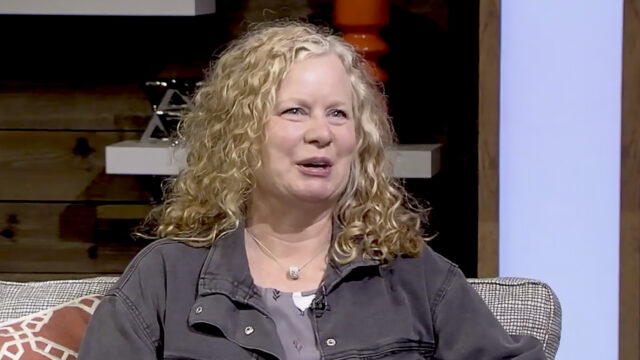Kitty Norton, creator and producer of ”Wine, Women, and Dementia,” joins Suzanne to share three tips for caring for a loved one.
Kitty says, “Number one is community. And if people are disappearing on you in this dementia journey, on you and your dementia person, then go elsewhere, find them elsewhere. Get on the forums. Alzheimer’s Association has a great forum, Alz Connect, our society in England has a great forum. A lot of support groups have gone permanently online now because of the pandemic. The daughterhood, they have support virtual support groups you can sign up for, see if you like the people in them, see if you see if it clicks with, just find people. Do not do this alone… My solution to not being able to join them for wine was to have a Zoom wine night. They might be together. We all might be on our laptops in our separate houses, and we just pour a glass of wine, and we’d still have our girls night out.
“Number two is creativity. This is a journey that you cannot sit in one solution for very long. So just be creative, don’t say to yourself, ‘I can’t do this. My person won’t go to day centers. That’s never gonna be an option for us.’ It may be an option later. They may be more progressed and it may be fine. In the meantime, figure out what you can do to get some of that time to yourself in a different way. You just have to be creative every day. Some of the most frustrating parts for me as a caregiver were real: We just solved that problem a month ago — a month ago we figured out a new way to get the meds in, and now that’s not working. And I just wanna bash my head against a wall. Don’t go there. Just open your mind up and think about how else to get it done. Everything, everything is an option in dementia.
“Number three is you’re the expert. I think all of us start this journey thinking the people that we expect to have the answers, the medical community, are going to somehow be helpful. And while I think they’re trying to catch up, they are not the expert. Do not put up with doctors who will not work with you, do not put up with doctors who are dismissive of you or your dementia person. Move on, go to someone else. When you have an issue, tell the doctors your solution is not going to work. Do you have another solution, or do I need to talk to someone else? And it takes a while to get there. We’re pretty used to them being the authority. But eventually you’re going to understand that you’re the one who knows the most about your dementia person.”
Learn more:
* Wine, Women, and Dementia: https://www.winewomenanddementia.com/
* Kitty Norton: https://www.winewomenanddementia.com/the-filmmakers
Hear more:
* Podcasts celebrating caregivers: https://answersforelders.com/category/saluting-caregivers/
Answers for Elders is part of the SeniorResource Network: https://www.seniorresource.com/
Check out our affiliate podcast Alzheimer’s Speaks: https://alzheimersspeaks.com/











